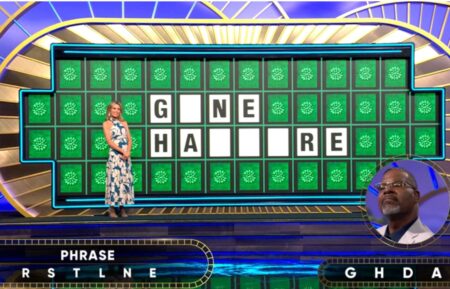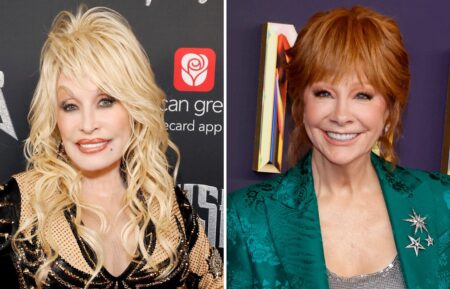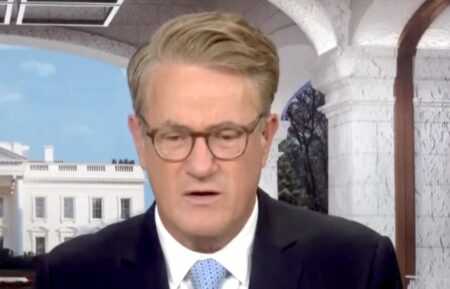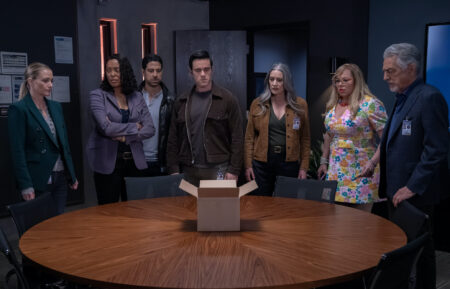‘Rodman: For Better or Worse’ Director Todd Kapostasy on ESPN’s Latest ’30 for 30′

Q&A
Dennis Rodman is one of the most colorful and controversial personalities in the history of sports. The many sides of the NBA champ are explored in the ESPN 30 for 30 series Rodman: For Better or Worse.
Todd Kapostasy takes the viewer on a roller coaster journey through the life and career of Rodman as told by family, friends, media figures, teammates and the man himself. Here, the seven-time Emmy Award-winning director and producer previews the unflinching documentary on this bad boy of the basketball court.
How did you come to get involved in this project?
Todd Kapostasy: One of the executive producers of the film, Mike Hughes and I have worked on several projects together in the past, and had been discussing a Dennis Rodman documentary for a long time. For over a year we batted around approaches, and concepts, and “takes” on his story- essentially what we thought would make the best film. We got Dennis on board with the documentary, and eventually ESPN showed interest in developing the project for their 30 for 30 series.
What was it like getting to know Dennis Rodman during the process?
It was interesting. Before making this film with Dennis, I assumed he would obviously be outgoing, sort of outrageous and gregarious character. And I think he can be those things, but more than anything, I discovered a really shy, cautious person. I think that’s who he is in most cases, especially with people he doesn’t know.
I don’t think he’s really ever been, or wanted to be, this crazy life-of-the-party character. I just think the trajectory of his life made him that way at times. Tom Wilson, who was the president of the Pistons during Dennis’ years described him as “painfully shy.” And I think in some ways that’s still true. I didn’t expect that, but I think that’s the dichotomy with Dennis. Publicly, he seems to crave attention, but privately I think he enjoys being a wallflower.
Did it take time to earn trust in telling his story?
Luckily, the 30 for 30 brand has become so pervasive that both athletes understand the level of care and thought that goes into each film. So that helps. But the interesting thing about Dennis is that I never got the sense that he necessarily needed to trust me. He pretty much wears everything on his sleeve and will answer every question you ask to the best of his ability.
I don’t think he was worried about what our “take” was going to be. In a way I think that’s how he has lived his life- not really concerning himself with the consequences of what he says or does. But I certainly tried to reassure him that we were trying to tell a really nuanced story about his life, and after the first extensive interview we had together, I think he trusted and understood what we were trying to do.
How much time was spent with Dennis? Over the course of how long?
Over the last year we probably spent about 20 hours interviewing him for the documentary. This was obviously spread out over several days, but it gave us a lot of time to dive into a lot of the themes that we wanted to cover in the film. And since we essentially tried to tell his story from birth to what he’s going through now, we needed to spend a good amount of time with him.
Was there any part of Dennis’ life that you found difficult for him to open up about?
Not really. But I think for anyone who is in the public eye and has had substance abuse issues, answering questions about those things can be difficult – particularly when you’re asked about it constantly. He really tried to be as open and honest as possible about his struggle with alcohol, but I sensed it wasn’t easy for him, especially since it’s an ongoing challenge. We also covered his struggle to be a present father in the film – another topic that’s complicated. But to his credit, he answered everything we asked. I guess that’s the great thing about doing a Dennis Rodman documentary, he’s generally an open book.
We see family members, colleagues and others who have known Dennis over the years featured in the doc. Was there anyone that was particularly difficult to secure?
I think his first daughter Alexis had some apprehension about being in the film. She’s had an extremely complicated relationship with her father for 30 years, and at first I don’t think she wanted to dive into those issues on camera. And I totally understood that. I think if we had done the documentary a few years ago she wouldn’t have agreed, but she told me that having a child of her own recently gave her a new perspective on parenthood that she thought was valuable to share. I think she came across as one of the most compassionate and insightful characters in the film.
Dennis Rodman is such a polarizing figure, but there are many ways he comes off as relatable. What was your initial vision for the documentary?
I think particularly today in 2019, the image of “Dennis Rodman” has become one that’s been reduced to parody in some ways. We all certainly remember that he was one of the greatest rebounders of all-time, and transcended basketball with what he did off the court. But it’s been easy in the later part of his life to reduce everything in his career to, well, he’s just crazy, or he’s just an attention seeker. But his story is really nuanced … and the hope was that throughout the making of the film we would uncover the underlying reasons for his behavior and help paint a picture of how Dennis Rodman became Dennis Rodman.
Hopefully, in part, the film reveals his vulnerability and insecurity. And those characteristics led him on really particularly journey. Wherever he was, he desperately sought love and acceptance and belonging. Those things almost seemed necessary to his survival. A lot of the importantly plot points we see in his life were the result of this somewhat desperate search throughout his life. Without a doubt that stuff is relatable.
When you have someone who is at times a larger-than-life character and is so well-known, there are preconceived notions. Were there one or two things that especially surprised you about Dennis Rodman or his life?
I think his attitude, both then and now, toward his experience in Oklahoma was surprising. His life from childhood and into his 20s in inner-city Dallas was so personally challenging and so devoid of success that he was willing to ignore the racism he faced in Oklahoma for any sliver of acceptance or belonging. I also think his ongoing relationship with his mother was surprising and interesting. Going into the interview process for the film I had no idea that both Dennis and Shirley Rodman had this lingering resentment from various things that had happened over the last 50 years.
Has Dennis seen the finished documentary yet?
He has. I haven’t personally spoken to him about it yet, but was told that he really enjoyed it.
What do you want people to walk away with from watching this?
I think, unfortunately, the public perception of Dennis is as a caricature in many ways…and maybe an attention seeker. And maybe the attention is something he needs now, but Dennis Rodman wasn’t someone who just happened to wake up one day and decide to dye his hair and put on a wedding dress or befriend Kim Jong-un. There was a series of events that slowly led him to do these things and be that person.
So, hopefully, after watching the film there’s a better understanding of how someone evolves in this way. And while some things that he’s done or said will and should anger and frustrate a viewer, I really do think there some sympathy to be had for Dennis Rodman.
Rodman: For Better or Worse premieres Tuesday, September 10, 9/8c, ESPN










